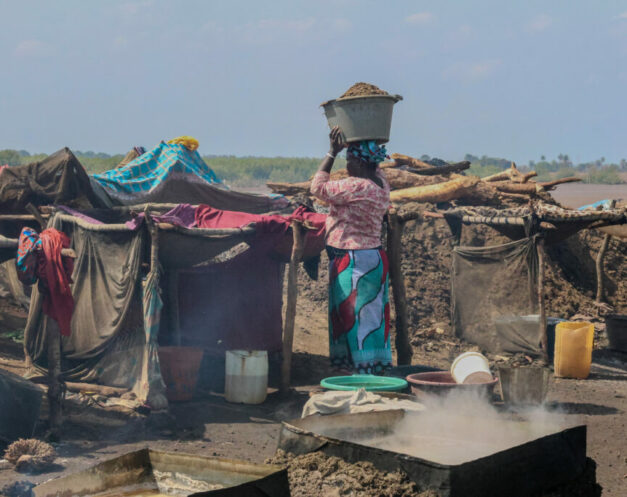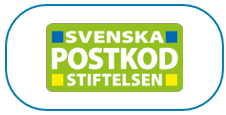Rooted Resilience


In 2017, Wetlands International launched the Mangrove Capital Africa (MCA) program. This ten-year program aims to protect 1 million hectares of African mangroves, benefiting 2 million people. As part of this program, Wetlands International has undertaken projects across the African continent and has been active in the Casamance region of Senegal since 2021.
We are delighted to announce that our work in Casamance is expanding with the launch of a new project, “Rooted Resilience,” funded by the Swedish Postcode Lottery Foundation. This project is part of the Mangrove Capital Africa program and aims to protect 65,000 hectares of mangroves in Casamance. Initial activities have already taken place, including the official launch of the project, the opening of our office in Ziguinchor, and the training of local stakeholders on Global Mangrove Watch and community-led ecological mangrove restoration.
Launch of “Rooted Resilience”: joint opening of a Wetlands International office in Ziguinchor

On May 30, 2024, Wetlands International West Africa and Gulf of Guinea (WIACO) proudly inaugurated a new office in Ziguinchor. The inauguration was attended by numerous stakeholders, including NGOs, civil society, administrative authorities, the press, and other stakeholders.
A two-day workshop was organized around the inauguration to jointly explore opportunities for landscape-level collaboration through the strengthening of a previously established “regional mangrove platform.” A mapping exercise was also conducted to better understand where the platform is already conducting projects. This is an essential step to ensure the coordination and alignment of conservation, restoration, and livelihood activities in the years to come. The workshop concluded with the clear enthusiasm of stakeholders in the region to continue this joint effort in the future.
Capacity building: from monitoring to restoration
Building on the enthusiasm generated by the kick-off meeting, we organized a follow-up training workshop in Ziguinchor from July 8 to 10, 2024. This workshop aimed to promote the use of best practices in mangrove restoration, monitoring, and conservation.
Traditional mangrove restoration and conservation initiatives have experienced numerous failures due to the use of inappropriate restoration methods, a lack of reliable data on mangrove coverage and extent, and a lack of involvement of communities living near mangrove areas. Wetlands International, in partnership with other international institutions, has therefore developed innovative conservation and restoration approaches and tools, such as Best practice guidelines for mangrove restoration, Community-Based Ecological Mangrove Restoration (CBEMR), a video series on mangrove restoration, and the Global Mangrove Watch (GMW) platform.

Unlike traditional mangrove restoration methods, CBEMR promotes the restoration of ecological functions such as hydrology and the active participation of communities in creating ideal conditions for natural mangrove regeneration. GMW, implemented by Wetlands International, is a platform that provides the remote sensing data and mangrove monitoring tools needed for conservation. With high-resolution information on topography, soil conditions, and hydrology, it provides universal access to near-real-time information on the location and evolution of mangroves worldwide.
This training, which combined classroom work and a field trip to the Kaloolaal Boulouf Fogny Marine Protection Agency (MPA), provided an opportunity for participants, including MPA management committees and other organizations present, to build their capacity in best conservation and restoration practices. Participants trained in the use of the GMW platform and the CBEMR method are now better equipped to prioritize, plan, and monitor their conservation and restoration efforts. This workshop opens the prospect of greater synergy in mangrove conservation and restoration efforts in the Casamance landscape and, more broadly, in Senegal.
New financial management: the principles of GECCOM

In addition to the technical training, a workshop was also held for spontaneous savings and credit groups (GECCOMs) in Ziguinchor. A group of key stakeholders from more than 30 villages covering five marine conservation agencies were trained on GECCOM principles, thereby strengthening their administrative practices and financial management. Following the training, GECCOM kits, including boxes, mats, registers, and calculators, were made available to the beneficiary groups to promote and facilitate the transition from spontaneous to official status.
The expansion of the Mangrove Capital Africa program through the “Rooted Resilience” project marks an important step towards sustainable mangrove conservation in the Casamance region. Through a strengthened local platform, community-based ecological mangrove restoration techniques, and improved financial management training, Wetlands International is fostering a collaborative environment to achieve its long-term goal: to preserve 1 million hectares of African mangroves, including 65,000 hectares in Casamance, by 2027.
The “Rooted Resilience” project is supported by the Swedish Postcode Lottery Foundation and DOB Ecology’s Mangrove Capital Africa program.
Donors:


